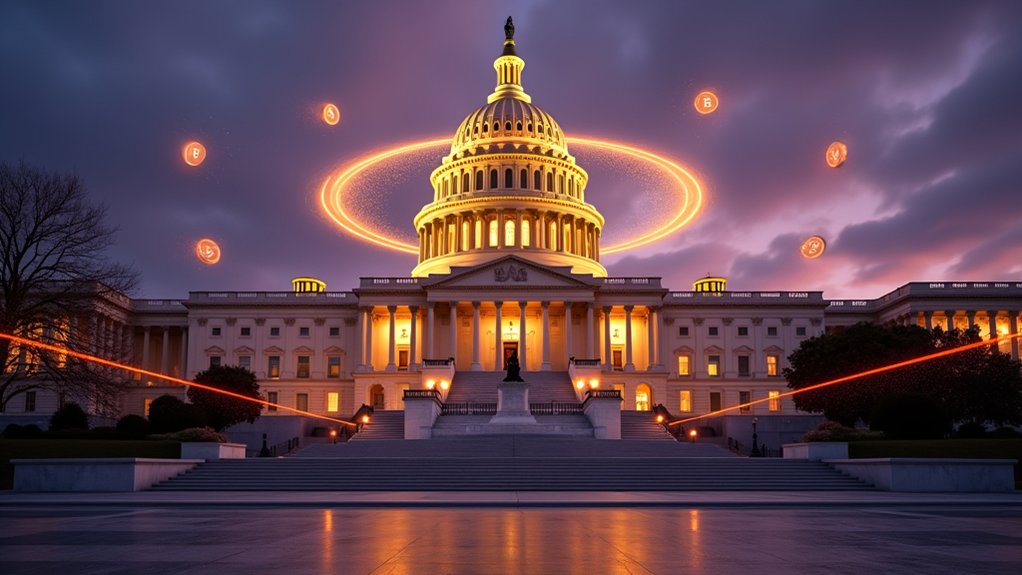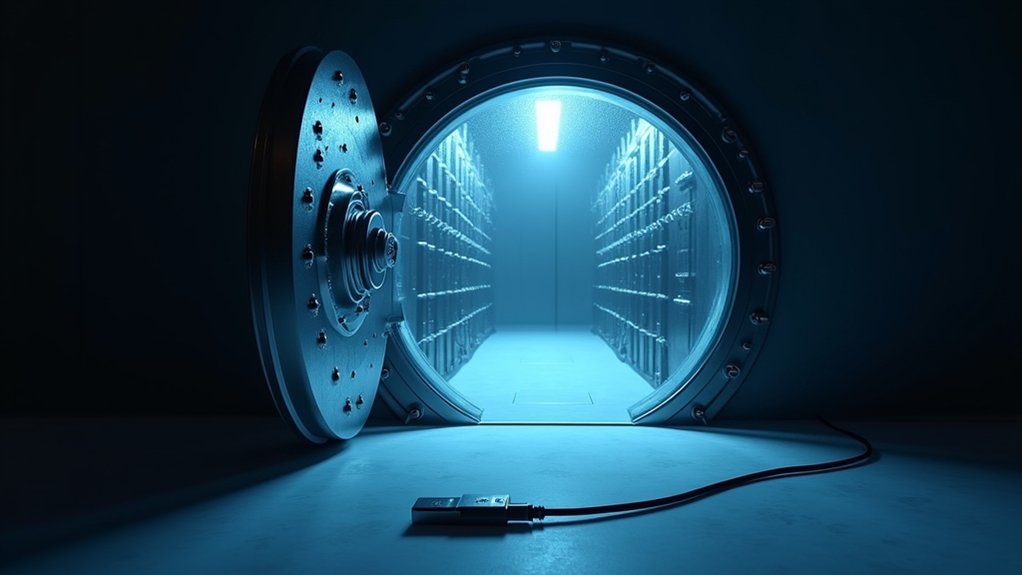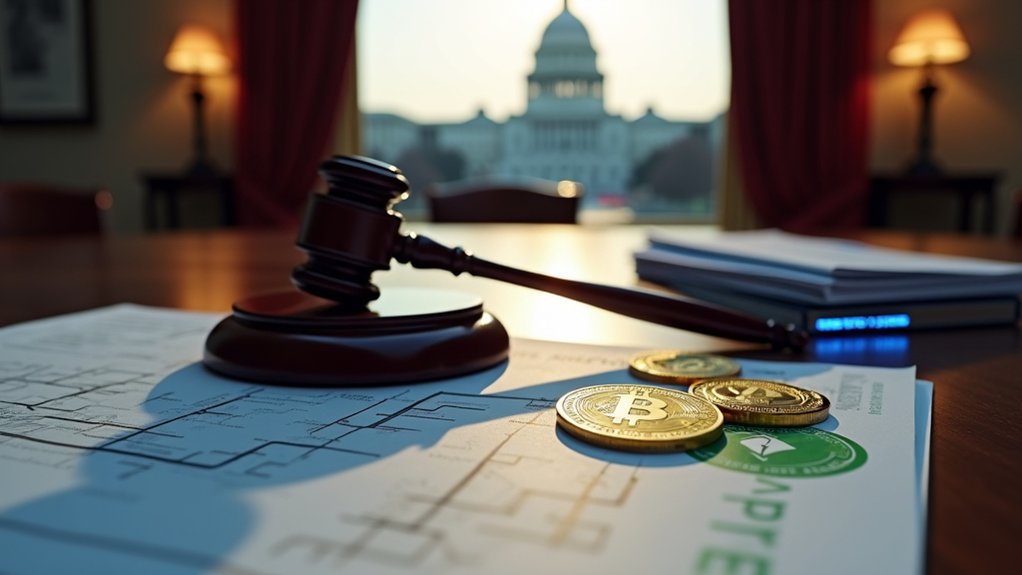While lawmakers on Capitol Hill have historically dragged their feet on crypto regulation, they’re finally getting serious about stablecoins. The House’s STABLE Act and Senate’s GENIUS Act are racing toward the finish line, with both chambers hoping to get something done before the August 2025 recess. Who would’ve thought – Democrats and Republicans actually agreeing on something crypto-related?
Congress finally gets its act together on stablecoins, with rare bipartisan support pushing new regulations forward into 2025.
But it’s not all smooth sailing. The Senate recently hit a wall in negotiations, proving once again that even bipartisan support doesn’t guarantee an easy path forward. The bills have some key differences, particularly when it comes to dealing with foreign issuers and deciding when state-regulated players need to switch to federal oversight. Classic Congress – making simple things complicated. With market cap exceeding $230B, the stablecoin industry’s explosive growth has created unprecedented urgency for regulation.
The STABLE Act is playing it safe, requiring stablecoin issuers to keep full reserves and undergo regular audits. No fancy yield products allowed – sorry, crypto enthusiasts. The bill throws a bone to community banks, though, letting them use stablecoin reserve funds as deposits. The strict rules require one-to-one reserve backing for all payment stablecoins. It’s like traditional banking with a digital twist.
President Trump is pushing hard for this one, keen to score some crypto wins before the congressional clock runs out. The crypto industry generally supports regulation, but some lobbyists are worried that passing a stablecoin bill might kill momentum for broader crypto reform. Talk about a crypto catch-22.
Both chambers are proposing extensive federal oversight frameworks, complete with anti-money laundering measures and consumer protection standards. They’re still debating whether non-bank stablecoin issuers should get Federal Reserve master accounts – a detail that probably keeps some bankers up at night.
The whole process is starting to look like a high-stakes poker game, with industry players, lawmakers, and regulators all trying to read each other’s tells. Everyone agrees something needs to be done, but nobody can quite agree on exactly what. Welcome to Washington, where even bipartisan agreement comes with a side of drama.





